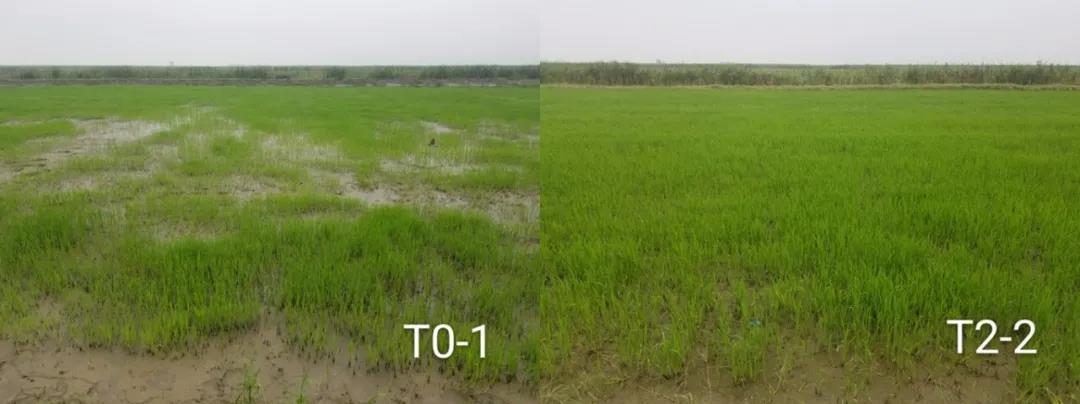Hengsha Dongtan on the Chongming Island, which encloses an area of about 160,000 mu, or 10,666 hectares, is an important reserve land for ecosystem preservation and agricultural use. However, formed by estuarine deposit, the soil is sandy, lacking in organic matter and nutrients and plagued by salinization. Therefore, a solution to improve the soil is in urgent need.

ECNU's research result , the Happy Ecological Rice
A solution is now found by a research team led by Deng Hong, an associate professor with the School of Ecology and Environmental Sciences of ECNU and also a specially-appointed professor at Institute of Eco-Chongming, which can increase soil fertility, minimize pest and disease threat, and reduce pesticide use.

ECNU's research team and villagers of Hengsha Dongtan celebrate the harvest.
Their research result, known as the Happy Ecological Rice, has raised the per unit yield of rice in the experimental group of ameliorated paddy fields by 128 percent compared to that in the control group.

Comparative figures before (left) and after(right), July 18th.

Comparative figures before (left) and after(right), September 18th.

Comparative figures before (left) and after(right), November 4th.
During the research process, the researchers continuously monitored changes in key indices, such as rice growth, leaf chlorophyll content, pH value of the soil, salinization and enzymatic activities. This allows them to make further comparisons in soil fertility and ecological quality after the experiment ends.

Comparison of rice plants on September 18th.

Comparison of rice plants on November 4th.
This rice, when cooked, is soft and gluttonous, Deng said proudly. The average yield of the 30-mu improved paddy fields exceeds 400kg per mu. We have harvested about 12,500kg so far. It proves that after soil improvement the paddy fields are much more fertile. The improvement formulations make a big difference. The rice yields per unit have increased by 16-128 percent after the soil is meliorated.
For half a year, I have recorded every stage of rice growth, and measured every ridge of the field with my feet, said Chen Sinan, a postgraduate student of Class 2019 who is a member of the research team.
Turning sterile land into golden paddy fields fills her with excitement. When I taste the rice grown from the experimental fields I have worked on, I have a sense of accomplishment, she said.

ECNU students in the field
In the coming year, based on a more efficient use of recycled agricultural waste, the research team will apply the self-developed microbial agent to further studies on Hengsha land improvement, forming the university’s own individual intellectual property rights for the soil modifiers and solutions.
Source: School of Ecological and Environmental Sciences, ECNU
Copy editor: Joshua Mayfield
Editor: Siyuan Zhang


